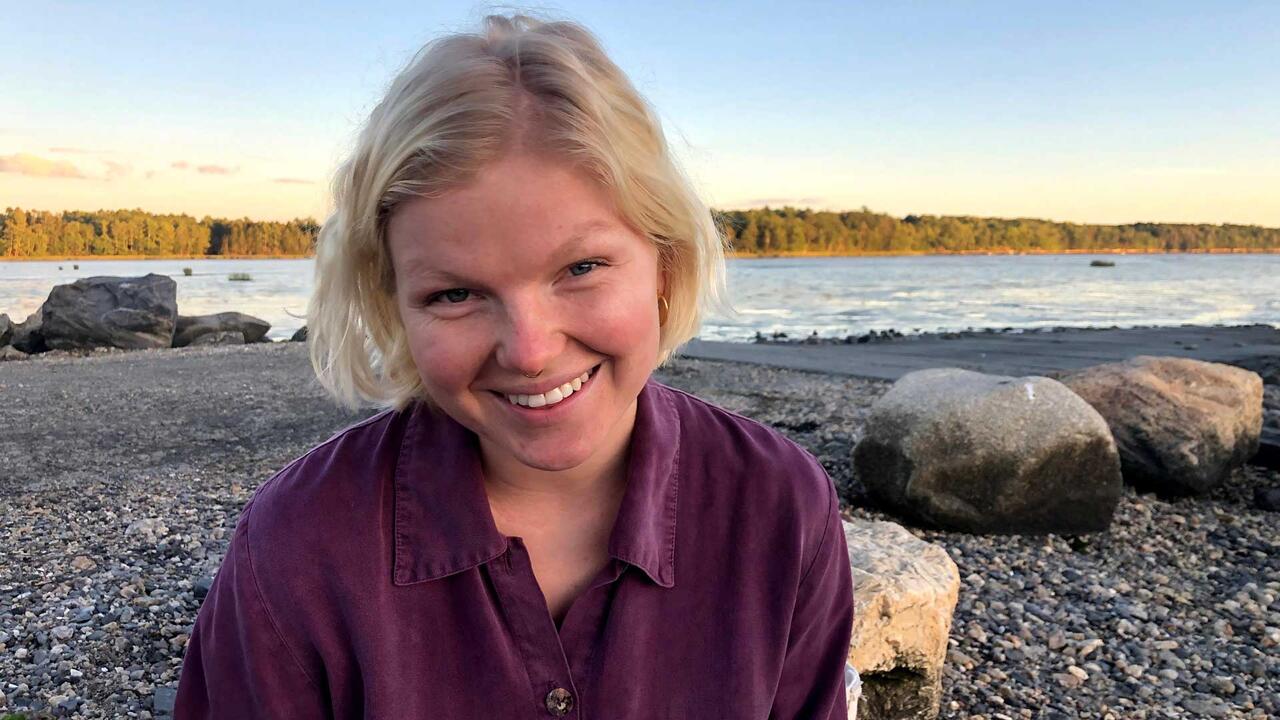
Watson Fellow Will Explore the Role of Women in Fishing Communities
Despite the pandemic, Grace Callahan ’21 has big plans. After graduating a semester early with a degree in biology, she moved to the coast of Maine and is interning remotely for PRX’s radio show Living on Earth. She’s also checking the Centers for Disease Control and Prevention maps almost daily to see when she’ll be able to travel the world to explore women’s roles in fishing communities through the Thomas J. Watson Fellowship she was awarded this March. So far, even last year’s Watson fellows have been unable to leave the United States.
Callahan had planned to do extensive research in Chile, Spain, Tanzania, and South Korea, but, she says, “because of the pandemic, I’ve had to be a bit more flexible.” She’s now considering Iceland, Peru, Kenya, and Palau, among others. “I’ve been reading books and talking to researchers all over the world, which is one of the good things about Zoom being so ubiquitous.”
Her interest in local fishing industries crystallized on a monthlong trip to Lake Baikal in Siberia with 10 other Wellesley students, part of a course taught by Thomas Hodge, professor of Russian, and Frost Professor Emerita in Environmental Science Marianne Moore. “It was an incredible experience, especially for me as a biology major,” she says, “melding biology with Russian studies—language and history and literature. That was the point where the connections between the biology that I was doing in my classes and the humanities and social sciences seemed very obvious.”
“[There are] a lot of different conceptions of the ocean, and a lot of exciting and creative solutions that are happening all over the world.”
Grace Callahan ’21
That journey exactly halfway around the globe made her start thinking about the role of women in fishing, and, advised by her professors at Wellesley, Callahan began her own research. Women across the world are involved in fisheries, but the kind of work they do is often not recognized or protected, she says. “Instead of doing longline fishing out in the middle of the Pacific, they’ll be doing shellfish gathering by the shore or seaweed farming,” she explains. “Women are often the people who sell the fish or mend the nets and create the tools that are necessary to fish, but those roles are often not as protected or even as safe as the actual fishing. So I’m interested in how women’s labor affects the social and economic systems in these coastal communities. I’m also really interested in the places in the world where women have been advocating for more visibility, more power, and protection.”
Having grown up in New England, Callahan says, she is aware of the compromise, and a certain tension, between conservationists and fisheries. But, she says, there are “a lot of different conceptions of the ocean, and a lot of exciting and creative solutions that are happening all over the world.” She adds that women’s involvement in fishing is dependent on location, such as the South Korean Haenyeo women who free-dive to collect shellfish and seaweed, and women’s groups in Tanzania that are committed to establishing marine-protected areas to preserve their fish stocks.
Callahan is hopeful she’ll be able to pursue her research soon, and she has her vaccine appointments lined up, but she is ready to put her plans on hold if need be. “Entering those spaces in the wake of a pandemic, as a white American especially, is something that I think would be very fraught,” she says. “I would rather stay in the U.S. longer than to rush out this summer” to rural communities that might be suffering because of COVID-19. For now, she’ll keep working and researching, with every confidence that the ocean will be there when the world is ready for travel again.

